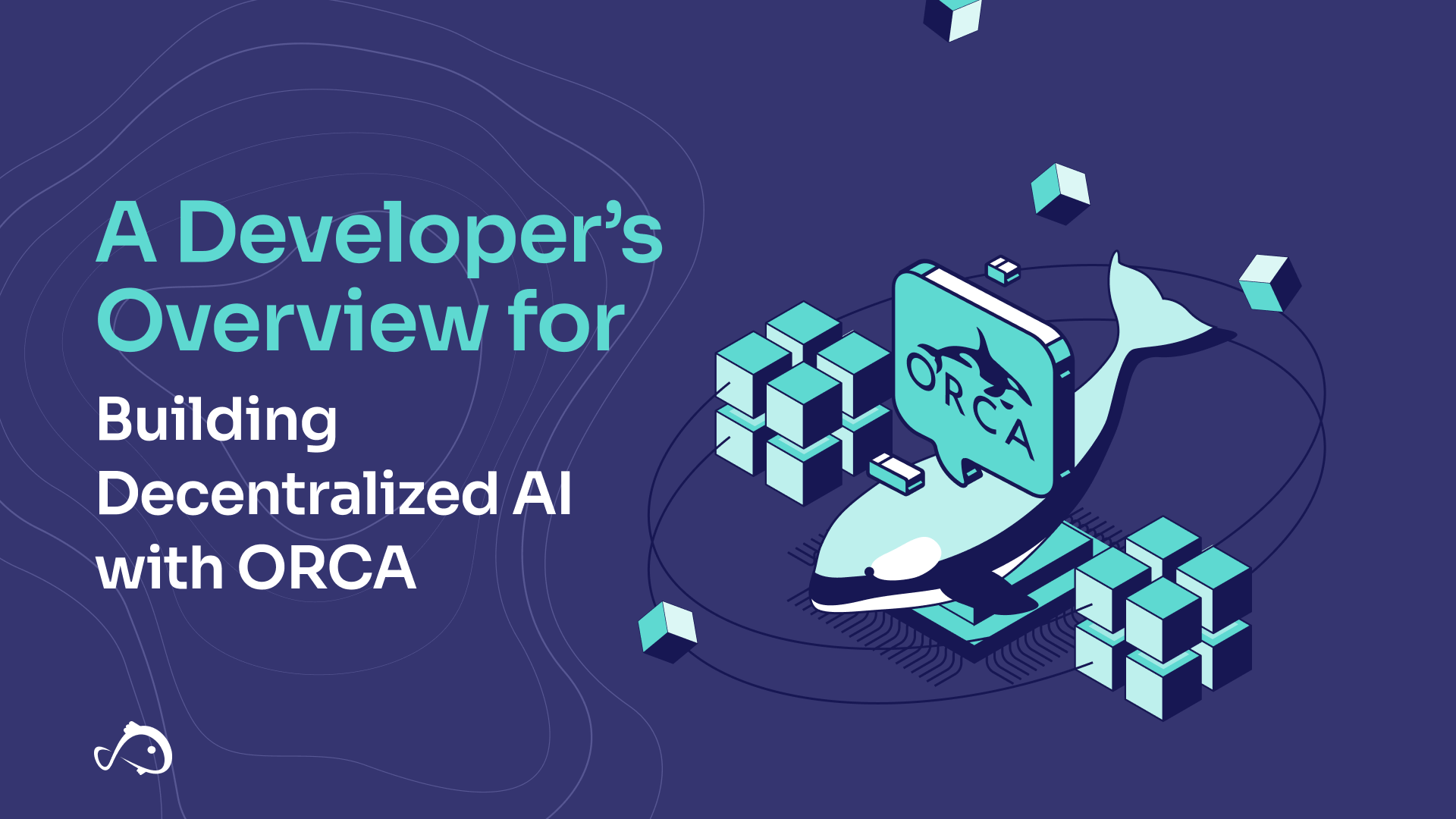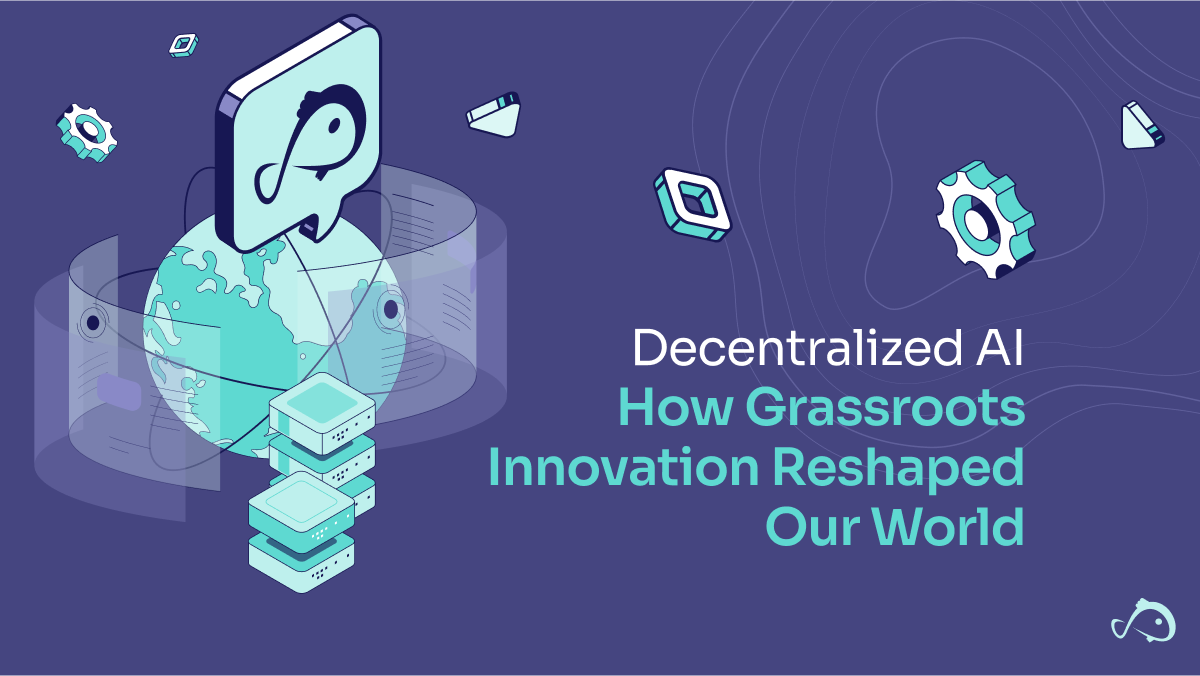In the rapidly evolving landscape of artificial intelligence, decentralized AI is emerging as a powerful alternative to traditional centralized models. ORCA Containers, a key technology in this space, are revolutionizing how developers approach AI deployment within Decentralized Physical Infrastructure Networks (DePIN). This article provides a technical overview of ORCA Containers and their role in supporting decentralized AI development.
Technical Challenges in Centralized AI
Before diving into ORCA Containers, it’s important to understand the technical limitations of centralized AI:
- Scalability bottlenecks
- Data silos limiting model training
- High latency in edge computing scenarios
- Resource inefficiencies in large data centers
- Difficulties in ensuring data privacy and security
ORCA Containers: Technical Deep Dive
ORCA Containers are specialized, lightweight computational units designed for decentralized AI workloads. Key technical features include:
- Containerization Technology: Based on Docker, ensuring portability across different computing environments.
- Microservices Architecture: Allows for modular AI model deployment and scaling.
- Distributed Execution: Leverages DePIN for parallel processing of AI tasks.
- Built-in Version Control: Facilitates easy rollbacks and A/B testing of AI models.
- Resource Allocation Protocol: Dynamically assigns computational resources based on AI task requirements.
Core Components of ORCA Containers
- Runtime Environment: Optimized for AI libraries like TensorFlow and PyTorch.
- Data Handling Layer: Implements federated learning protocols for privacy-preserving model training.
- Network Interface: Manages communication between containers and the DePIN network.
- Security Module: Incorporates encryption and access control mechanisms.
- Monitoring and Logging System: Provides real-time metrics on container performance and resource usage.
How ORCA Containers Support Decentralized AI Development
- Distributed Model Training:
- Implements federated learning algorithms
- Allows training on decentralized datasets without raw data sharing
- Edge AI Deployment:
- Optimized for low-latency inference at network edges
- Supports offline operation for IoT devices
- Scalable Infrastructure:
- Automatic load balancing across the DePIN network
- Horizontal scaling of AI services based on demand
- Version Management and Deployment:
- Streamlined CI/CD pipelines for AI models
- Easy rollback and canary deployment features
- Resource Optimization:
- Intelligent allocation of compute resources
- Reduces idle time and improves overall efficiency
Integration with DePinDex
DePinDex, a decentralized exchange for computational resources, plays a crucial role in the ORCA ecosystem:
- Resource Discovery: Allows developers to find and allocate necessary computational power for their AI tasks.
- Dynamic Pricing: Implements an automated market maker (AMM) for fair and efficient pricing of compute resources.
- Smart Contract Integration: Facilitates secure and transparent transactions for resource allocation.
- Incentive Mechanisms: Implements yield farming and other DeFi concepts to incentivize resource providers.
Development Workflow with ORCA Containers
- Model Development: Create and train your AI model locally or on a small cluster.
- Containerization: Package your model and dependencies into an ORCA Container.
- Deployment: Push the container to the DePIN network via DePinDex.
- Scaling: Define scaling rules based on performance metrics and resource availability.
- Monitoring and Optimization: Use built-in tools to monitor performance and optimize resource usage.
Technical Challenges and Future Development
While ORCA Containers offer significant advantages, developers should be aware of ongoing challenges:
- Consistency in Federated Learning: Ensuring model consistency across distributed training environments.
- Network Latency: Optimizing for high-speed communication between containers.
- Security in Decentralized Environments: Developing robust security protocols for distributed AI systems.
- Interoperability: Ensuring compatibility with various DePIN protocols and standards.
Future development efforts are focused on addressing these challenges and expanding the capabilities of ORCA Containers, including enhanced support for quantum computing algorithms and improved cross-chain compatibility.
Conclusion
ORCA Containers represent a significant leap forward in decentralized AI development. By providing a robust, scalable, and efficient platform for AI deployment in DePIN environments, they open up new possibilities for developers to create innovative, privacy-preserving, and highly scalable AI applications.
As a developer, embracing ORCA and the broader decentralized AI ecosystem can provide you with powerful tools to overcome the limitations of centralized systems and build the next generation of AI applications. Find out more about ORCA here.

 Decentralized AI: How Grassroots Innovation Reshaped Our World
Decentralized AI: How Grassroots Innovation Reshaped Our World